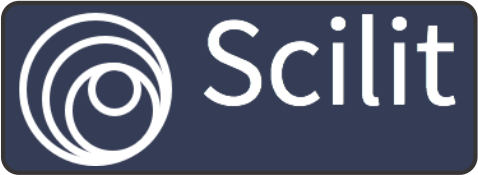Internalisasi Nilai Ekonomi Islam sebagai Ekosistem Ekonomi di Era Metaverse
DOI:
https://doi.org/10.21154/joie.v2i1.4678Keywords:
internalization, Islamic economic values, economic ecosystem, metaverseAbstract
The emergence of metaverse technology is a challenge for the digital economic order in Indonesia, especially in the internalization of Islamic economic values. The depravity of the capitalist economy that cannot answer the challenges of a economic principle is the answer to its failure to respond to the community's economic ecosystem in the metaverse era. This article aims to analyze and examine the internalization of Islamic economic values as a just economic ecosystem in Indonesia. This research is qualitative with literature review and online observation with an ethnographic approach. The study results show that Islamic economic values can be a solution to problems in the metaverse, especially in the distribution of welfare. The Indonesian economy, which is based on the MSME sector (micro, small and medium enterprises), has long been recognized as a significant business sector in the fundamental role of the economy. The concept of waqf in Islam has proven to be a means of sharing welfare compared to other systems. In the end, the Islamic economic system can achieve a welfare state that encourages the achievement of human capital building and improvements in social sectors compared to the capitalist economic system. In the metaverse, the principles of Islamic economics encourage macroeconomic progress and embrace microeconomic practitioners while still having the rights regulated in Islamic economics; even technicians who are not directly involved in the metaverse also have rights regulated in Sharia and Fiqh. Economic values do regulate not only principles but also policy products. This makes Islamic economics included in all lifelines, including in the metaverse where everything is interconnected, so everyone will know that Islamic economics does not harm anyone and allows prosperity for the community.References
Bungin, B. (2001). Metodologi penelitian kualitatif.
Daraz, A. (2021). A Forgotten Era of Modern Banking & Finance. Journal of Emerging Finance and Social Sciences, 1(1).
Duan, H., Li, J., Fan, S., Lin, Z., Wu, X., & Cai, W. (2021). Metaverse for social good: A university campus prototype. Proceedings of the 29th ACM International Conference on Multimedia, 153”“161.
Farida, I., Hadiansyah, H., Mahmud, M., & Munandar, A. (2017). Project-based learning design for internalization of environmental literacy with islamic values. Jurnal Pendidikan IPA Indonesia, 6(2), 277”“284.
Harahap, D. A. (2022). Menilik Transformasi Transaksi Elektronik di Perbankan.
Ishak, M. S. I., & Asni, F. (2020). The role of maqasid al-Shariʿah in applying fiqh muamalat into modern Islamic banking in Malaysia. Journal of Islamic Accounting and Business Research.
Islam, M., Yamaguchi, R., Sugiawan, Y., & Managi, S. (2019). Valuing natural capital and ecosystem services: a literature review. Sustainability Science, 14(1), 159”“174.
Katterbauer, K., Syed, H., Cleenewerck, L., & Genc, S. Y. (n.d.). Islamic finance in the metaverse”“a meta-finance framework for supporting the growth of Shariah-compliant finance options in the metaspace.
Kim, J. (2021). Advertising in the Metaverse: Research Agenda. In Journal of Interactive Advertising (Vol. 21, Issue 3, pp. 141”“144). Taylor & Francis.
Lee, L.-H., Braud, T., Zhou, P., Wang, L., Xu, D., Lin, Z., Kumar, A., Bermejo, C., & Hui, P. (2021). All one needs to know about metaverse: A complete survey on technological singularity, virtual ecosystem, and research agenda. ArXiv Preprint ArXiv:2110.05352.
Moleong, L. J. (2021). Metodologi penelitian kualitatif. PT Remaja Rosdakarya.
Niazi, M. A. K., Ghani, U., & Aziz, S. (2019). Impact of Islamic Religiosity on Consumers’ Attitudes towards Islamic and Conventional ways of Advertisements, Attitude towards Brands and Purchase Intentions. Business and Economic Review, 11(1), 1”“29.
Putra, N. A., Wahyono, H., & Wardoyo, C. (2016). Internalisasi nilai-nilai pendidikan ekonomi keluarga suku Selayar. Jurnal Pendidikan: Teori, Penelitian, Dan Pengembangan, 1(11), 2189”“2193.
Qardhawi, M. Y. (1980). Halal dan haram dalam Islam. Himpunan Belia Islam.
Qardhawi, Y. (1997). Norma dan etika ekonomi Islam.
Sparkes, M. (2021). What is a metaverse. Elsevier.
Wang, Y., Su, Z., Zhang, N., Liu, D., Xing, R., Luan, T. H., & Shen, X. (2022). A survey on metaverse: Fundamentals, security, and privacy. ArXiv Preprint ArXiv:2203.02662.
Yafiz, M. (2015). Internalisasi maqâshid al-syarî’ah dalam ekonomi menurut M. Umer Chapra. Ahkam Jurnal Ilmu Syariah, 15(1), 103”“110.
Yasen, S. (2018). Internalization Of Balance And Justice Value Sharia Economic System In Indonesia. Jurnal Hukum Ekonomi Syariah, 2(2), 80”“94.


















